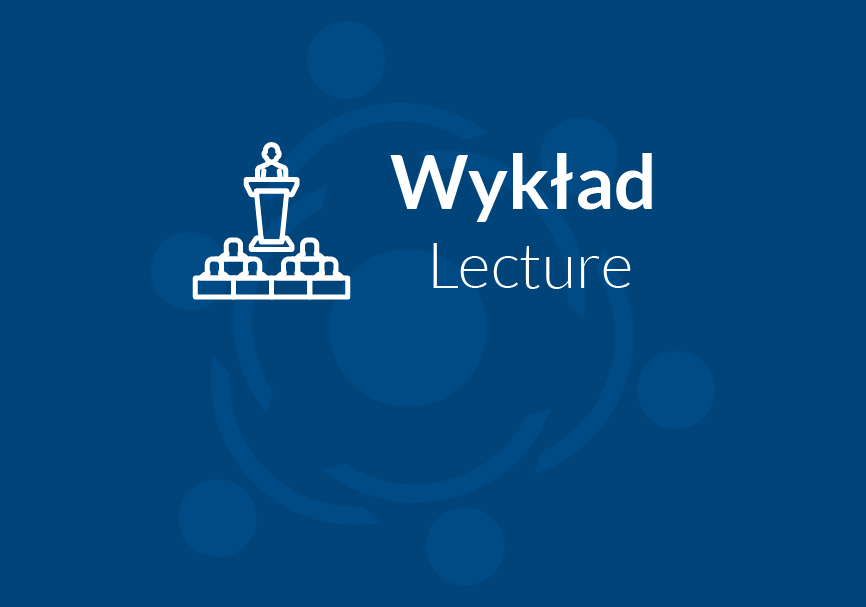Seminar: Fraternity in International Relations: Concept and its Implementation in the Contemporary World

Open guest lecture: Global Impact, Local Roots: Swiss Philanthropy in the International Ecosystem by Piotr Augustyniak, Columbus Private (Suisse), Geneva, Switzerland, 25.11.2024
November 13, 2024
Seminar and Workshops organised by Centre of Excellence in the Social Sciences
November 21, 2024
The Department of Regional and Global Studies, Faculty of Political Science and International Studies, University of Warsaw, in cooperation with the NSZZ Solidarność UW Trade Union Commission and the University of Opole, invites to participate in the Seminar:
Fraternity in International Relations: Concept and its Implementation in the Contemporary World
be held on November 20, 2024, 3:00-6:00 PM,
in hybrid mode,
at the seat of the NSZZ Solidarność UW Trade Union Commission
(building of the Office of Social Affairs at Mały Dziedziniec, Krakowskie Przedmieście 24)
The seminar is associated with the research project directed by Joanna Kulska and Anna M. Solarz, titled “Fraternity as an Overlooked Element of (Global) Politics”. More about the project below.
Seminar Program:
3.00-3.15 PM Introduction to the Project and Seminar (Prof. Joanna Kulska and Dr. Anna M. Solarz)
3.15-4.25 PM Part 1 Religious or secular roots of the concept of “brotherhood” in the modern world
In the modern interpretation of fraternity, both secular and religious elements intertwine to define its essence. Which has been more influential? Could fraternity be viewed as a postsecular notion, given that it integrates both secular and spiritual aspects? Historically, the Gospel and the social teachings of the Catholic Church have been pivotal in shaping the idea of fraternity. Does it have the capacity to continue influencing the notion of fraternity in contemporary international relations?
Discussion with the participation of:
– Prof. Michał Gierycz (Cardinal Stefan Wyszyński University)
– Dr. Michael Roseneck (Johannes Gutenberg University Mainz, Johann Wolfgang Goethe University Frankfurt am Main)
– Prof. Joanna Kulska (University of Opole)
– Dr. Anna M. Solarz (University of Warsaw)
Moderation of this part of the seminar – Prof. J. Kulska and Dr. A.M. Solarz
4.25-4.30 PM short break
4.30-6.00 PM Part 2 Brotherhood in times of war and armed conflicts
What purposes does the idea of brotherhood serve in difficult times of tension and armed conflict? Does it serve to overcome antagonisms and build peace? Is it an ideology used to justify conquests or an empty phrase that does not stand for real support for the “brothers”? How does the idea of brotherhood fit into the Russian-Ukrainian war? Is it present in the ongoing wars in the Middle East and in what form?
Discussion with the participation of:
– Prof. Alicja Curanović (University of Warsaw)
– Dr. Iullia Korniichuk (Ludwig Maximilian University of Munich)
– Prof. Māra Kiope (Latvia University, Lateran Pontifical University in Rome) and Prof. Inese Runce (Latvia University), both are conducting research within the framework of Latvian National Research Program Project Cutting-edge knowledge and solutions to study demographic and migration processes for the development of Latvian and European society; the grant Nr.VPP-LETONIKA-2021/4-0002
– Ph.D. Candidate Paulina Warsza (University of Warsaw)
Moderation of this part of the seminar – Prof. A. Curanović
The seminar is scheduled to take place in a hybrid format. Owing to the limited seating at the Commission’s headquarters and the option for online participation, those interested in attending the seminar should reach out to Dr. Anna Solarz via email: asolarz@uw.edu.pl
***
The book to which the seminar refers entitled Fraternity as an overlooked element of (global) politics, will be published by Routledge in 2025.
Here is the table of contents:
Foreword, Amalia Amaya Navarro
Introduction. Fraternity as an overlooked element of (global) politics, Joanna Kulska and Anna M. Solarz
Section 1. Defining the term and the contexts
Chapter 1. Kamil Minkner, Between community and conflict. An attempt to reconstruct the theoretical discourse on fraternity
Chapter 2. Joanna Radwańska-Williams, Solidarity, fraternity, sorority: Reflections from the individualist-collectivist intercultural continuum
Chapter 3. Rafał Prostak, What we owe each other: fraternity, solidarity, or mutual respect? A liberal perspective
Chapter 4. Michael Roseneck, Religious reasons and democratic deliberation. A critique of exclusivist approaches in political theory
Chapter 5. Tamas Nyirkos, “Friendship” as a political concept in Thomas Aquinas: an alternative to “fraternity”?
Chapter 6. Michał Gierycz, “Universal brotherhood”: a religious or secular concept? On the idea of human fraternity in Fratelli tutti and monotheistic religious traditions
Section 2. From theory to practice
Chapter 7. Joanna Kulska, Between rights and duties: fraternity as a post-secular concept
Chapter 8. Massimiliano Signifredi, “Spirit of Assisi”, “Fratelli tutti”, Human Fraternity.
The prayer meetings for peace of the Community of Sant’Egidio in a historical perspective
Chapter 9. Anna M. Solarz, The “Solidarity Movement: A Polish style brotherhood. An attempt to explain the phenomenon through the prism of its religious component
Section 3. Between idea and reality
Chapter 10. Monika Gabriela Bartoszewicz and Piotr Gil, Brotherhood Without Brothers
Chapter 11. Marcin Składanowski, The Notion of ‘Brotherly People’ in the Service of Russian Neo-Imperialism: The Image of Ukraine and Ukrainians in Russian Strategic Documents and Security Debate after 2014
Chapter 12. Māra Kiope, Solveiga Krumina-Konkova and Inese Runce, Brotherhood and solidarity in Latvia: the context of history, war and migration
Section 4. Non-Western alternatives (?)
Chapter 13. Abdessamad Belhaj, Branding Human Brotherhood in Saudi Arabia: Limits and Resources for Global Politics
Chapter 14. Hessam Habibi Doroh, Tablighi Jamaat in Iran. Borderless Fraternity with Global Ambitions
Chapter 15. Benson Ohihon Igboin, Ubuntu: African Personhood and the Reconstitution of Global Community
Afterword. Fraternity can change the world… for the better? Anna M. Solarz and Joanna Kulska
Index






